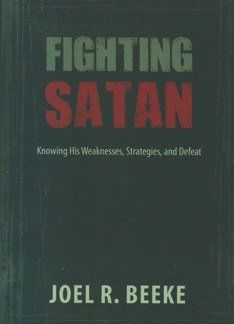Some people perceive so much demon activity that personal responsibility is undermined. Others so totally ignore Satan that they effectively deny his reality. Joel Beeke avoids both extremes, and offers a balanced attitude. He points out that demon possession was fairly frequent during the ministry of Jesus, less prominent in the book of Acts, and is never mentioned in the New Testament letters.
However, he recognises that in gospel pioneering situations, or in today’s western world (where sceptical secularism and the rise in occult activity sit, ironically, side-by-side) such phenomena are likely to reappear. He insists that the New Testament’s silence on techniques for demon expulsion imply that the solution is not to attempt to perform exorcisms, but to powerfully preach the gospel.
He also attributes such things as the rise of heresies within the church and persecution against the church as satanically inspired.
The book’s main purpose, though, is to help believers wrestle successfully against Satan. It falls into four parts. The first outlines biblical teaching on Satan and documents examples of his activity in church history.
Part two is based on Ephesians 6:10-18. It explains God’s provision for defending ourselves against Satan’s attacks and how to go on the offensive against him. The third section outlines Satan’s typical strategies and offers practical advice on how to avoid falling into sin, while part four shows how we can wage spiritual warfare in our personal lives, church lives and life in the world.
Each section has two chapters, and each chapter ends with a series of five questions designed to test the reader’s understanding and encourage personal reflection and response. Running through the book is heartfelt application to both believers and unbelievers.
The author’s underlying conviction is that Satan’s campaigns inevitably fail, because God uses them to advance his own purposes. Satan is merely mighty, but Christ is almighty.
Jonathan Bayes
Thirsk




